Peaceworks
Publications
Articles, publications, books, tools and multimedia features from the U.S. Institute of Peace provide the latest news, analysis, research findings, practitioner guides and reports, all related to the conflict zones and issues that are at the center of the Institute’s work to prevent and reduce violent conflict.
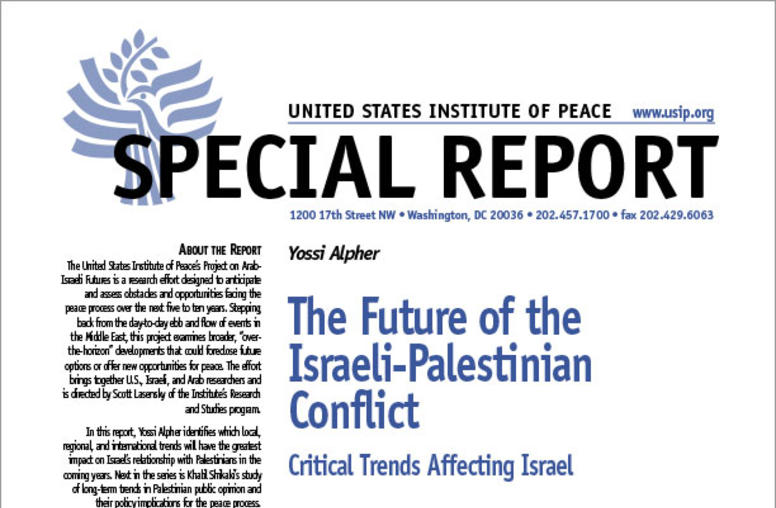
The Future of the Israeli-Palestinian Conflict: Critical Trends Affecting Israel
In this report, Yossi Alpher identifies which local, regional, and international trends will have the greatest impact on Israel's relationship with Palestinians in the coming years. Next in the series is Khalil Shikaki's study of long-term trends in Palestinian public opinion and their policy implications for the peace process.
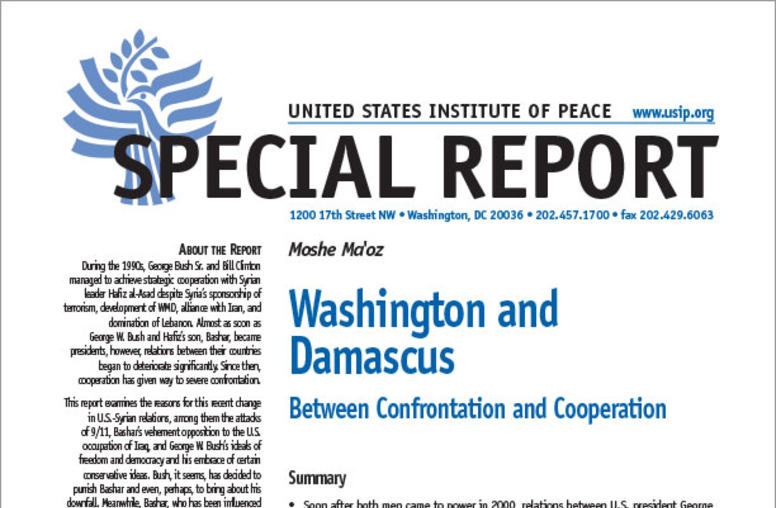
Washington and Damascus: Between Confrontation and Cooperation
Summary Soon after both men came to power in 2000, relations between U.S. president George Bush and Syria's president Bashar al-Asad began to deteriorate significantly. Since the Iraq war of 2003, Washington and Damascus have been on a collision course. Washington has resented the indirect assistance provided by Syria to Saddam's regime and to his loyalists, both before and after the U.S. occupation of Iraq.
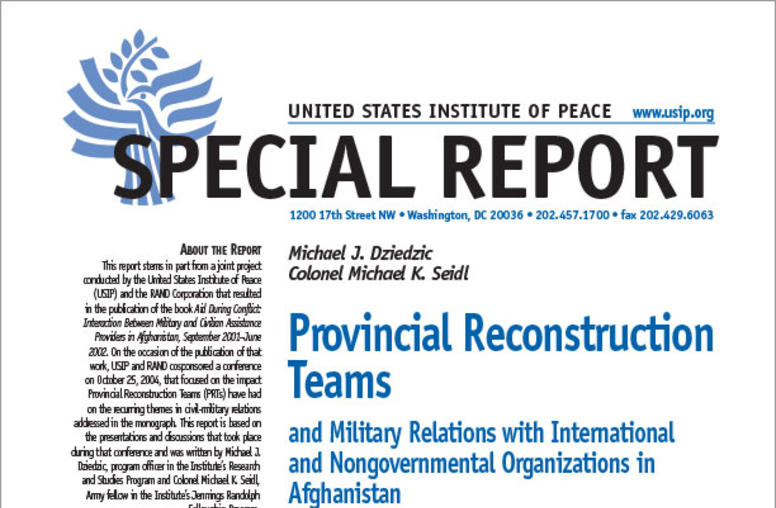
Provincial Reconstruction Teams: Military Relations with International and Nongovernmental Organizations in Afghanistan
Summary Deployed in Afghanistan during Operation Enduring Freedom, Provincial Reconstruction Teams (PRTs) combine military personnel and civilian staff from the diplomatic corps and developmental agencies. Their mission is to: extend the authority of the Afghan central government, promote and enhance security, and facilitate humanitarian relief and reconstruction operations. Twenty PRTs were currently in operation throughout Afghanistan as of June 2005: thirteen staffed by the U.S.-le...
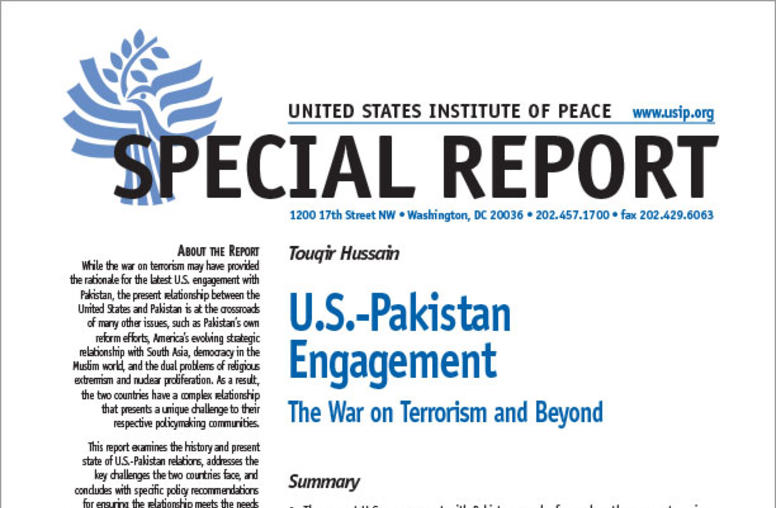
U.S.-Pakistan Engagement: The War on Terrorism and Beyond
Summary The current U.S. engagement with Pakistan may be focused on the war on terrorism, but it is not confined to it. It also addresses several other issues of concern to the United States: national and global security, terrorism, nuclear proliferation, economic and strategic opportunities in South Asia, democracy, and anti-Americanism in the Muslim world.
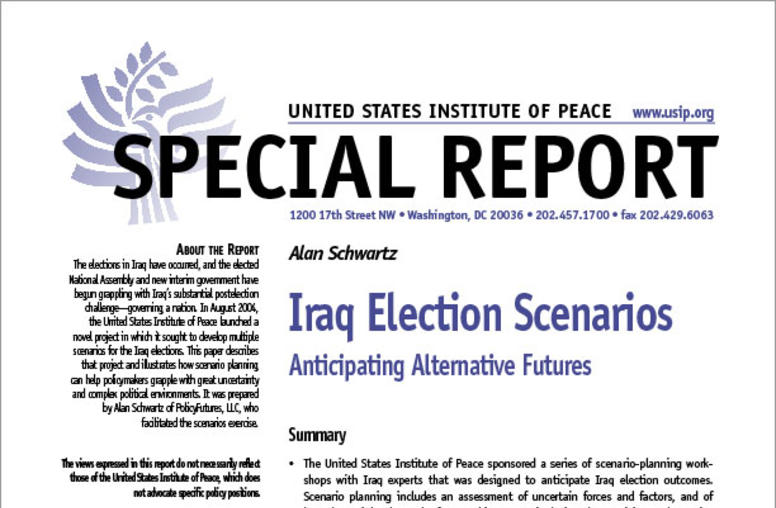
Iraq Election Scenarios: Anticipating Alternative Futures
The elections in Iraq have occurred, and the elected National Assembly and new interim government have begun grappling with Iraq's substantial postelection challenge—governing a nation. In August 2004, the United States Institute of Peace launched a novel project in which it sought to develop multiple scenarios for the Iraq elections
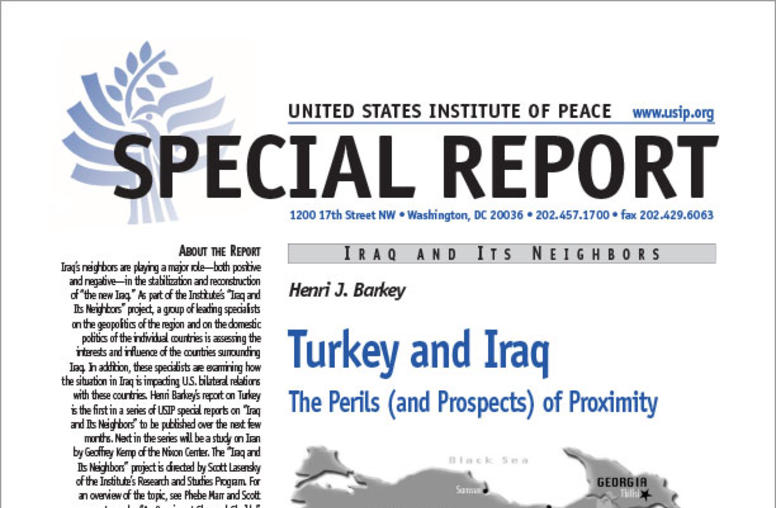
Turkey and Iraq: The Perils (and Prospects) of Proximity
Summary Throughout the 1990s, Turkey was the anchor in the containment of Saddam Hussein's Iraq by the United States. The unpredictable set of events unleashed by Operation Iraqi Freedom has unnerved both Turkish decision makers and the public alike. The U.S.-led coalition's operation in Iraq has also upended Turkey's fundamental interests in Iraq, which are fourfold:
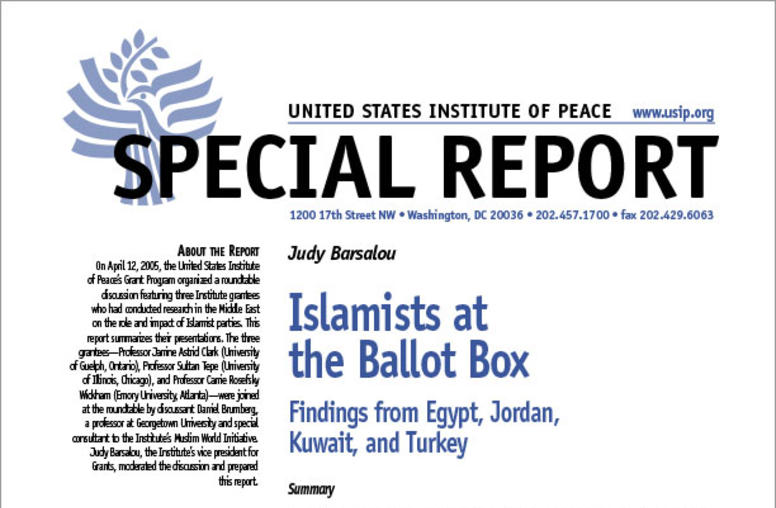
Islamists at the Ballot Box: Findings from Egypt, Jordan, Kuwait, and Turkey
On April 12, 2005, the United States Institute of Peace's Grant Program organized a roundtable discussion featuring three Institute grantees who had conducted research in the Middle East on the role and impact of Islamist parties.
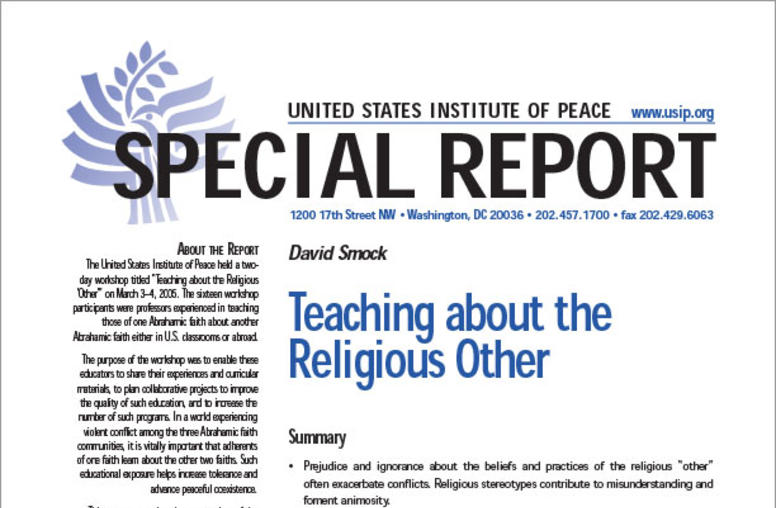
Teaching about the Religious Other
The United States Institute of Peace held a two-day workshop titled "Teaching about the Religious 'Other'" on March 3–4, 2005. The sixteen workshop participants were professors experienced in teaching those of one Abrahamic faith about another Abrahamic faith either in U.S. classrooms or abroad. This report summarizes the presentations of the participants, introduces some promising new programs for teaching about the religious other, and offers lessons drawn from the discussion. It was writte...
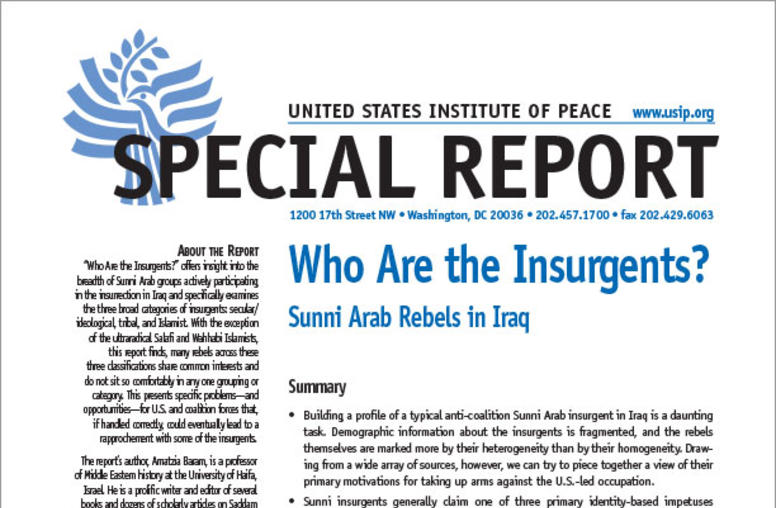
Who Are the Insurgents? Sunni Arab Rebels in Iraq
"Who Are the Insurgents?" offers insight into the breadth of Sunni Arab groups actively participating in the insurrection in Iraq and specifically examines the three broad categories of insurgents: secular/ideological, tribal, and Islamist. With the exception of the ultraradical Salafi and Wahhabi Islamists, this report finds, many rebels across these three classifications share common interests and do not sit so comfortably in any one grouping or category.

Political Islam in Sub-Saharan Africa: The Need for a New Research and Diplomatic Agenda
Summary An understanding of the multifaceted nature of political Islam on the African subcontinent is a precondition for the formulation of an effective U.S. policy toward the region. Such a formulation would place political Islam in a historical and contemporary context. In East Africa, discrimination against Muslims—which began in colonial mission schools and continued in education and employment following independence—played an important role in the development of political Islam...